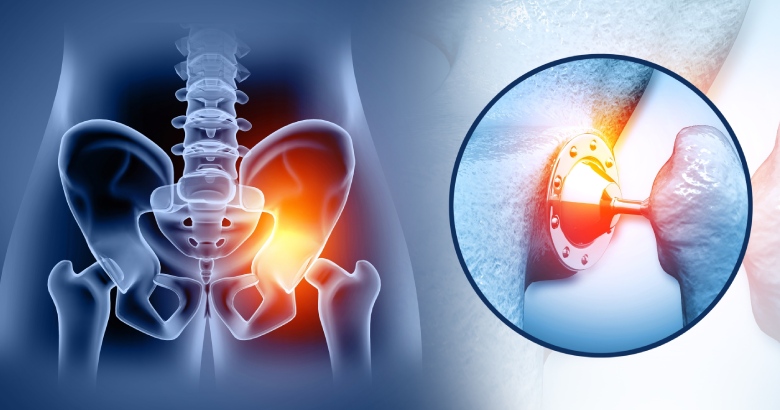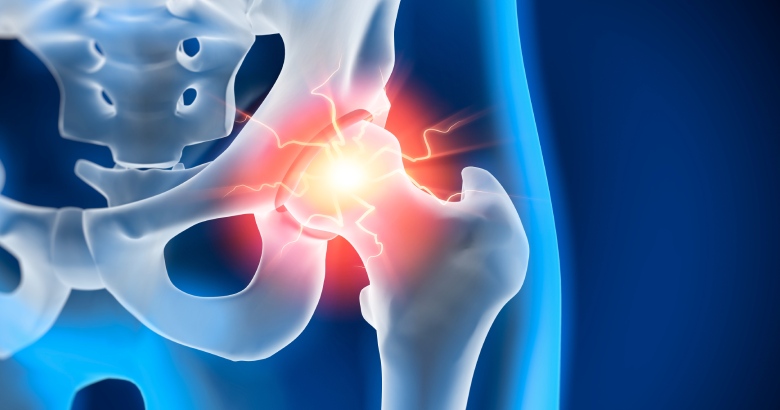Treatments
Let Us Call You Now!
Leave your information, and our experts will contact you as soon as possible!
What is Hip Replacement?
Hip replacement is a surgical treatment for patients who have lost joint function due to severe damage to the hip joint or diseases that cause joint deterioration. In this procedure, an artificial joint, i.e. a prosthesis, is inserted instead of the damaged joint parts. Hip replacement is performed through smaller incisions compared to traditional surgical techniques, resulting in less damage to the surrounding tissues. This method shortens the recovery time after surgery and allows patients to return to their daily activities faster. Hip replacement is generally recommended for patients who experience severe pain and limitation of movement due to osteoarthrosis, rheumatoid arthritis, osteonecrosis and other conditions that impair the hip joint. With surgical intervention, joint functions are restored and the quality of life of patients is significantly improved.
Who is a good candidate for hip replacement?
Hip replacement is a good treatment option for patients of any age who lead an active lifestyle and have hip joint problems. However, determining whether this method is suitable for each patient requires individual evaluation. The surgeon determines the most appropriate treatment approach by considering the patient's age, joint structure, current health status and other medical factors. It is possible to determine for which patients this method is suitable with a detailed evaluation of the surgeon.
Hip replacement can be performed in patients with various joint diseases. This surgery is generally preferred for patients who have severe damage to the joint as a result of degenerative diseases such as osteoarthritis, rheumatoid arthritis, hip dysplasia, avascular necrosis and experience pain and restriction of movement. In addition, partial or total hip replacement methods can be performed in cases where the joint loses its normal functions after hip fractures or serious traumas in the joint. The surgery aims to improve the patient's quality of life and provide pain-free mobility by replacing the damaged joint surfaces with prostheses.
Hip Replacement and the Recovery Process
The recovery process after hip replacement surgery is more comfortable and faster with the surgical techniques performed. In this method, surgeons minimise intervention to muscles and soft tissues by using smaller incisions. This reduces postoperative pain and allows patients to recover in a short time. Small incisions also significantly reduce the risk of postoperative bleeding and infection, which reduces the likelihood of complications. In addition, the preservation of muscles and surrounding tissues allows patients to quickly regain mobility after surgery. Starting physiotherapy at a very early stage allows patients to return to their normal activities faster and improves their quality of life. Thanks to hip replacement, patients spend the postoperative period more comfortable and can return to their daily lives in a shorter time in general. This method supports the general well-being of patients by offering positive results both in the short and long term.
Recovery Process After Hip Replacement Surgery
Physiotherapy after the operation is very important for the joint to regain its normal function. Regular adherence to the exercise programme prescribed by the doctor helps patients to increase their mobility rapidly. In this process, a careful rehabilitation plan and regular follow-up of the patient ensures the successful completion of the recovery process. Thus, patients have a more comfortable recovery process in the postoperative period and their quality of life improves.
Frequently Asked Questions About Hip Replacement
How Long Does Hip Replacement Surgery Take?
Hip replacement surgery usually takes between 45-90 minutes. However, the surgery time may vary depending on the patient's condition and the surgeon's experience.
How long will I need to stay in the hospital after hip replacement surgery?
Typically, the postoperative hospital stay is 1-3 days.
When Can I Walk After Surgery?
On the day of the surgery, the patient usually stands up with the help of a physiotherapist, walks with a cane, is shown how to sit on and off a chair and sit on the toilet. The next day they start climbing up and down stairs.
How Long Does Pain Last After Hip Replacement Surgery?
The pain-reducing treatment started before the surgery is maintained after the surgery. Patients may experience less pain than they felt before the surgery, but this is completely eliminated with the medication to be used for 3-6 weeks.
Which Activities Should I Avoid After Hip Replacement Surgery?
It is best not to cross your legs, try to sit or stand on low places and do not do much more than the movements shown. You should stay away from such activities for the period recommended by your doctor. You will be shown additional movements you can do at each check-up.
How Long Does Full Recovery Take After Hip Replacement Surgery?
Most of our patients can walk unrestrictedly and do foot care at the end of the first 6 weeks. In this process, regular physiotherapy and doctor controls help to accelerate recovery.



